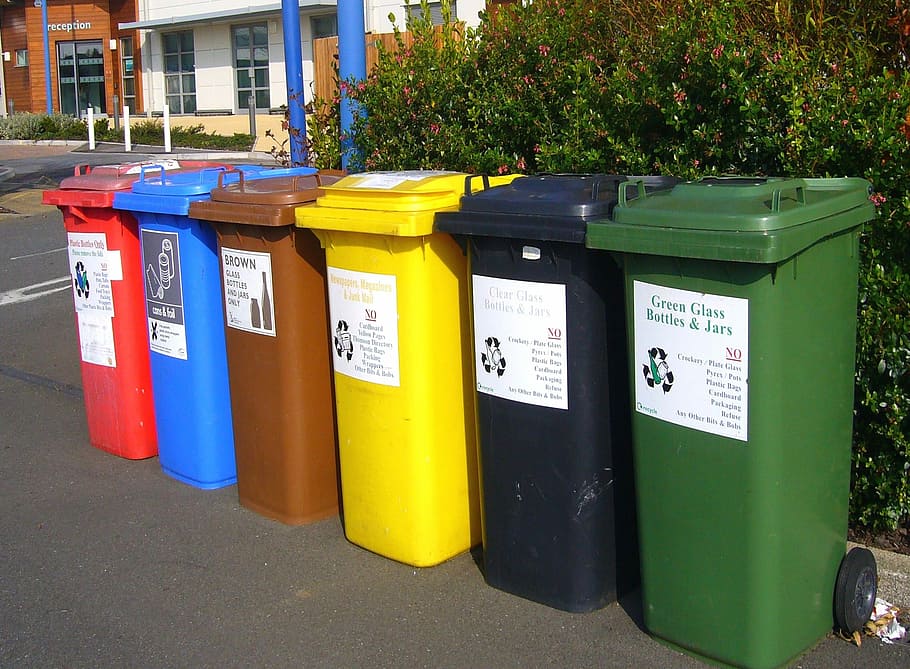In today’s world, living sustainably is no longer just a trend — it’s a responsibility. Reducing waste at home is one of the simplest yet most impactful ways you can contribute to a healthier planet. By making small, conscious changes, you can minimize your carbon footprint, save money, and inspire those around you to do the same.
Whether you’re just starting your zero-waste journey or looking to level up your eco-friendly habits, these practical tips will help you reduce household waste and live a greener life.
Why Reducing Household Waste Matters
Before diving into the ‘how,’ let’s talk about the ‘why.’ The average person generates about 4.5 pounds of trash daily. Much of that waste ends up in landfills, producing harmful greenhouse gases and polluting soil and waterways.
By cutting down on what you throw away, you help conserve natural resources, reduce pollution, and combat climate change. Plus, many waste-reducing habits can save you money — a win-win for you and the environment.
Start with the Three Rs: Reduce, Reuse, Recycle
The best way to reduce waste at home is to embrace the classic three Rs: reduce, reuse, and recycle.
Reduce: Be mindful of what you bring into your home. Buy only what you need, choose products with minimal packaging, and avoid single-use items when possible.
Reuse: Opt for durable, reusable alternatives instead of disposable ones. For example, bring your own bags to the store, use glass containers for leftovers, and repurpose jars and bottles.
Recycle: Know your local recycling rules and sort materials correctly. Clean containers before tossing them into the bin — contaminated recyclables often end up in landfills.
Practical Tips to Reduce Kitchen Waste
The kitchen is one of the biggest sources of household waste. Here’s how you can tackle it:
Plan Your Meals
Meal planning helps reduce food waste and saves money. Make a shopping list and stick to it. Check your pantry before heading to the store to avoid buying duplicates.
Store Food Properly
Learn how to store fruits, vegetables, and leftovers so they last longer. Invest in airtight containers and keep your fridge organized to see what needs to be eaten first.
Compost Food Scraps
Composting is an excellent way to reduce waste at home. Instead of tossing food scraps in the trash, compost them to create nutrient-rich soil for your garden. Many cities even offer curbside composting services.
Buy in Bulk
Purchasing staples like grains, nuts, and cleaning supplies in bulk reduces packaging waste. Bring your own containers or reusable bags when shopping at bulk stores.
Switch to Reusable Alternatives
Swap single-use items for reusable versions. Use cloth napkins instead of paper ones, washable dishcloths instead of paper towels, and beeswax wraps instead of plastic wrap.
Reduce Waste in the Bathroom
Bathrooms are another area where waste can add up quickly. Try these simple swaps:
Choose Sustainable Personal Care Products
Look for shampoos, soaps, and lotions that come in recyclable or compostable packaging. Better yet, switch to solid bars that eliminate plastic bottles altogether.
Ditch Disposable Razors
Invest in a high-quality safety razor with replaceable blades. Not only does this reduce plastic waste, but it’s also more cost-effective over time.
Use Reusable Cotton Rounds
Instead of disposable cotton pads or makeup wipes, use washable cotton rounds. They’re gentle on your skin and can be tossed in the laundry with your towels.
Go Plastic-Free Where Possible
Toothbrushes and floss are often overlooked. Switch to bamboo toothbrushes and biodegradable floss to cut down on plastic waste.
Declutter and Donate
Reducing waste at home isn’t just about food and packaging — it also includes decluttering responsibly.
Give Items a Second Life
Before throwing things away, consider whether they can be donated, sold, or repurposed. Clothes, furniture, toys, and electronics often have value to someone else.
Host a Swap Party
Gather friends and neighbors for a clothing or household item swap. It’s a fun, sustainable way to refresh your wardrobe or home without buying new items.
Dispose of Electronics Responsibly
E-waste is a growing problem. Recycle old phones, laptops, and batteries at designated drop-off points instead of tossing them in the trash.
Embrace a Minimalist Mindset
One of the most effective ways to reduce waste is to adopt a minimalist lifestyle. Focus on quality over quantity. Buy durable products that last longer and resist impulse purchases.
Opt for Digital Alternatives
Wherever possible, go paperless. Switch to digital bills, unsubscribe from junk mail, and use a note-taking app instead of sticky notes.
Green Cleaning: Cut Waste and Chemicals
Traditional cleaning products often come in single-use plastic containers and contain harsh chemicals. Here’s how to clean sustainably:
Make Your Own Cleaners
DIY cleaning solutions made from vinegar, baking soda, and essential oils are effective, safe, and reduce packaging waste.
Use Refillable Products
If DIY isn’t your thing, buy from brands that offer refill stations or reusable packaging. Many eco-friendly companies now sell concentrates you mix with water at home.
Switch to Reusable Cleaning Cloths
Ditch paper towels and disposable wipes for washable microfiber cloths or old t-shirts cut into rags.
Get the Whole Family Involved
Reducing household waste works best when everyone pitches in. Here’s how to make it a family affair:
Teach Kids About Sustainability
Talk to your children about why reducing waste is important. Make recycling and composting fun with colorful bins and easy-to-follow charts.
Lead by Example
Show your family how to make eco-friendly choices. Bring reusable bags when you shop, refuse plastic straws, and pack lunches in reusable containers.
Celebrate Small Wins
Every effort counts. Celebrate milestones like your first month of composting or cutting your trash output in half. Small successes keep everyone motivated.
How to Stay Consistent
Developing zero-waste habits takes time. Here are a few tips to stick with it:
Start Small
Don’t try to overhaul your entire lifestyle overnight. Pick one area — like switching to reusable grocery bags — and build from there.
Keep Essentials Handy
Store reusable bags, bottles, and containers in convenient places so you remember to take them when you go out.
Connect with a Community
Join local or online groups focused on sustainability. Sharing ideas and challenges with like-minded people helps you stay inspired and accountable.
Final Thoughts: Every Step Counts
Reducing waste at home isn’t about being perfect. It’s about making better choices every day. Even small changes, when multiplied by millions of people, make a big difference for the planet.
So, start today. Pick one tip that feels doable and put it into practice. Over time, these actions become second nature — and you’ll feel proud knowing you’re living more sustainably.
Ready to Make a Change?
It’s your turn to take action! Start your journey toward a zero-waste home today and inspire others to do the same. Share these tips with family and friends, and let’s build a greener, cleaner future together.






